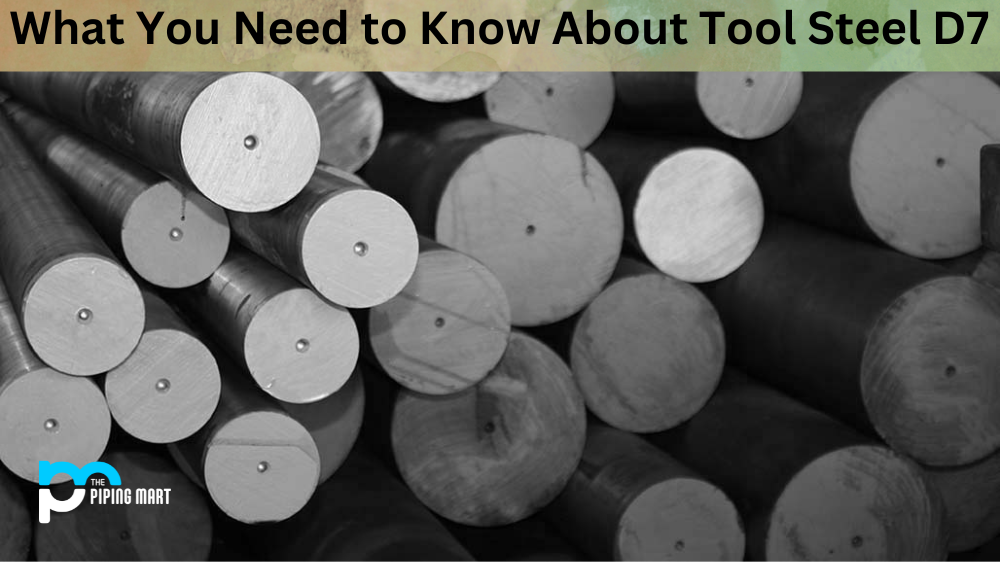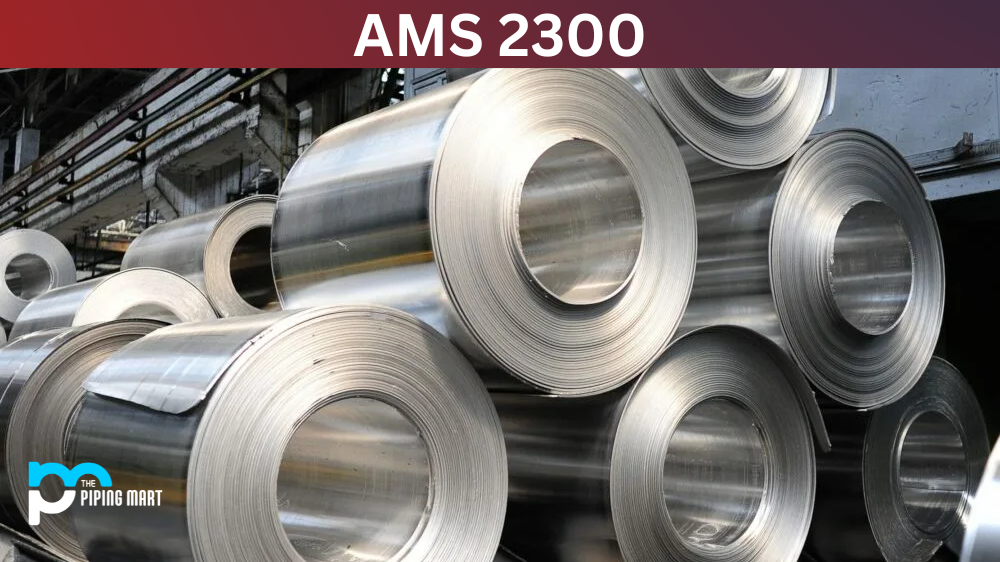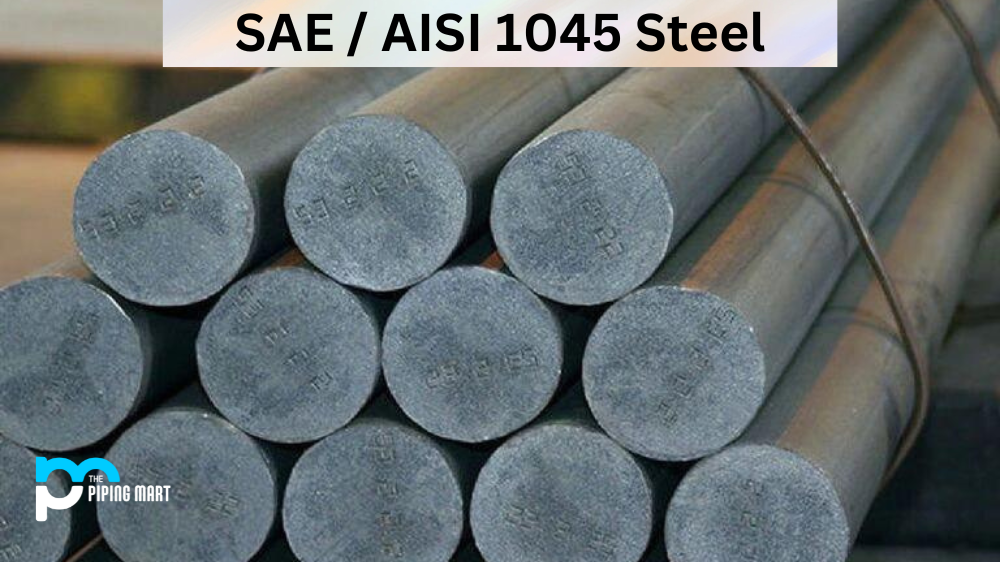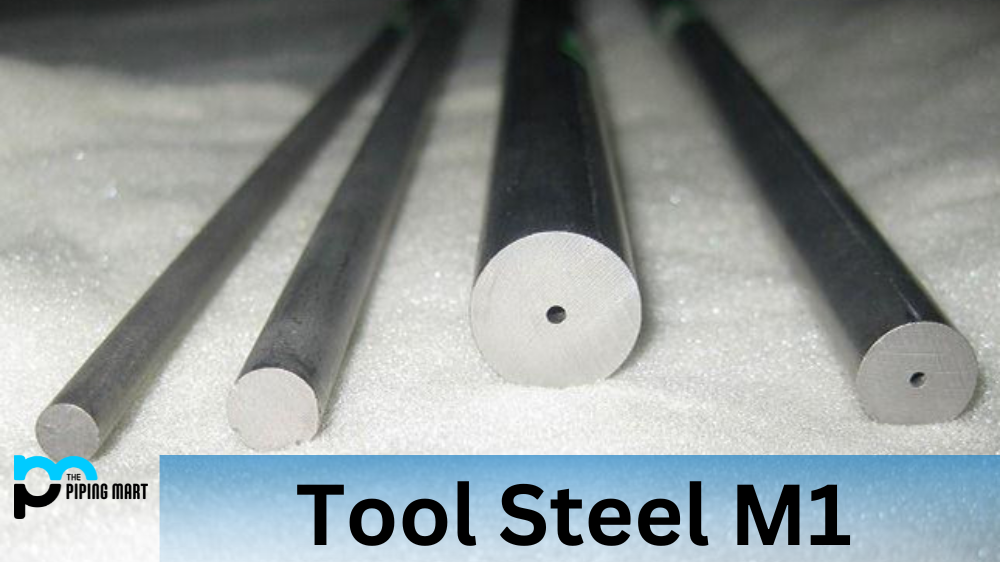Tool Steel D7 is a versatile and resilient material that has a variety of industrial uses due to its unique properties. D7 Tool Steel is widely used for the manufacturing of tools, dies, and other components due to its toughness and hardness. D7 Tool Steel, also known as UNS T30407, is a high-carbon, high-chromium cold-work tool steel that offers excellent wear resistance and toughness. Its composition of 1.55% carbon, 0.40% manganese, 0.90% silicon, 7.50% chromium, 1.30% vanadium, and 2.00% molybdenum gives it superior hardness and abrasion resistance. Additionally, D7 Tool Steel exhibits good machinability and can be easily shaped and formed to fit specific needs. This versatile steel is widely used in manufacturing cutting tools, dies, and molds for the automotive, aerospace, and general engineering industries. Its unique properties make it an ideal choice for applications requiring a combination of hardness, toughness and wear resistance. In this blog post, we will discuss the uses, corrosion resistance, heat resistance, heat treatment, and machining of UNS T30407. Read on to learn more about this popular material!
What Forms of D7 Tool Steel is Available at Piping Mart?
- Nut
- Bar
- Bolt
- Pipe
- Screw
- Tubing
- Valves
- Washers
- Flanges
- Fasteners
- Electrodes
- Stud Bolts
- Sheet Plates
- Pipe Fittings
- Forged Fitting
- Instrumentation Fittings
D7 Tool Steel Composition
| Element | Content (%) |
|---|---|
| Iron, Fe | 79.3 |
| Chromium, Cr | 12.5 |
| Vanadium, V | 4 |
| Carbon, C | 2.3 |
| Molybdenum, Mo | 1.1 |
| Silicon, Si | 0.4 |
| Manganese, Mn | 0.4 |
D7 Tool Steel Physical Properties
| Properties | Metric | Imperial |
|---|---|---|
| Density | 7.7-8.03 g/cm3 | 0.278 – 0.290 lb/in3 |
D7 Tool Steel Mechanical Properties
| Properties | Metric | Imperial |
|---|---|---|
| Modulus of elasticity | 190-210 GPa | 27557-30458 ksi |
| Poisson’s ratio | 0.27-0.30 | 0.27-0.30 |
| Hardness, Rockwell C | 62.5 | 62.5 |
| Izod impact unnotched | 21.7 J | 16 ft.lb |
D7 Tool Steel Uses
Tool steel D7 is an ideal material for making cutting tools such as knives, saws, drills, and other tools due to its high strength and wear resistance. It is also commonly used in die-forging applications since it can be easily formed into complex shapes with minimal effort. Additionally, tool steel D7 is often used in metal stamping operations because it can withstand extreme pressure and temperature changes without cracking or breaking apart.
D7 Tool Steel Uses in Industries
Automotive Industry
D7 tool steel is commonly used in the automotive industry for its high strength and wear resistance. It is often used to make components such as gears, shafts, and bearings subjected to heavy loads and extreme temperatures. Its toughness also makes it a preferred choice for manufacturing tools used in the production of automobiles.
Aerospace Industry
In the aerospace industry, D7 tool steel is widely used for its high strength-to-weight ratio and resistance to corrosion. It is commonly used to make parts for aircraft engines, landing gear, and other critical components that require excellent mechanical properties and reliability.
Oil and Gas Industry
D7 tool steel is also utilized in the oil and gas industry due to its ability to withstand harsh environments and resist corrosion. It is often used to manufacture drill bits, valves, pumps, and other equipment that withstand extreme pressure and corrosive substances.
Medical Industry
The medical industry also benefits from using D7 tool steel in various surgical instruments and implants. Its hardness and wear resistance make it ideal for producing cutting tools such as scalpels, forceps, and scissors. Additionally, it can be heat treated to achieve different hardness levels depending on the specific application.
Manufacturing Industry
D7 tool steel plays a crucial role in the manufacturing industry as it is commonly used to produce molds for plastic injection molding processes. Its high wear resistance helps prolong the lifespan of these molds, making them more cost-effective in the long run.
Tooling Industry
As its name suggests, D7 tool steel is widely used in the tooling industry due to its exceptional hardness and toughness. It is commonly used to manufacture cutting tools such as drills, reamers, taps, dies, and milling cutters required for precision machining operations across various industries.
D7 Tool Steel Corrosion Resistance
Tool steel D7 is highly resistant to corrosion thanks to its chromium content. This chromium helps form a protective layer on the surface of the metal that prevents oxidation from occurring. This makes it an excellent choice for use in environments where exposure to moisture or harsh chemicals could cause traditional metals to corrode quickly.
D7 Tool Steel Heat Resistance
Tool steel D7 can resist temperatures up to 1000 degrees Celsius without losing any of its strength or hardness. This makes it an ideal material for making tools that will be subjected to extreme temperatures, such as those found in welding operations or when working with molten metal alloys.
D7 Tool Steel Heat Treatment
The heat-treating process for tool steel D7 includes normalizing (heating then cooling) followed by tempering (heating again then cooling). This process increases the hardness of the material while still maintaining its strength and resilience against wear and tear from use over time. A result is a durable tool that can stand up against even the toughest jobs without breaking down prematurely.
D7 Tool Steel Machining
Machining tool steel D7 can be done either by traditional methods like drilling or milling or through more modern processes such as laser cutting or water jetting. However, machining should always be done carefully since tool steel D7 is prone to cracking if cut too fast or too deep at once.
Conclusion
Tool Steel D7 is a versatile material with many applications ranging from making cutting tools to die forging components due to its excellent properties, including high strength, wear resistance, and corrosion resistance when compared with other materials like carbon steel and stainless steel. Its ability to withstand extreme temperatures makes it ideal for working with molten metal alloys while still retaining its strength and resilience against wear over time with proper heat treatment procedures. Finally, careful machining must always be observed when cutting this type of steel in order for it not to crack under pressure. In conclusion, Tool Steel D7 is a great choice for anyone looking for an enduring material that offers excellent performance in various industrial applications.

A passionate metal industry expert and blogger. With over 5 years of experience in the field, Palak brings a wealth of knowledge and insight to her writing. Whether discussing the latest trends in the metal industry or sharing tips, she is dedicated to helping others succeed in the metal industry.




